Intermittent fasting is also called “alternate day fasting” or “intermittent energy restriction.” It is the process of fasting and feasting alternately. It consists of eating very little or nothing at all on certain days of the week or times of the day.
What is Intermittent Fasting?
‘Intermittent fasting’ involves alternating cycles of eating and fasting without specifying which types of foods can be eaten on non-fasting days. A person’s intake is often limited to non-calorific fluids such as water, tea, coffee, and diet drinks, or it may allow a very restricted amount of daily calories on a fasting diet. Intermittent fasting became popular over the past decade, but many people are still confused about what fasting entails. Intermittent fasting involves a short period of not eating followed by a period of eating freely. Fasting does not equate to starvation, and with all intermittent fasting regimens, get to eat every day.

Intermittent fasting is in trend and type of eating pattern in which we have to practice to limit the food intake in a way, that cycles between defined periods of fasting and non-fasting. Intermittent fasting is a type of eating with restricted calorie consumption or the use of reserved calories as fuel for the body. It is the type of fasting restrictive diet and thus it is categorized under FAD Diet.
During periods of fasting, it’s important to consume lots of protein. Consuming at least 50 grams of protein on a fast day will help keep hunger at bay and muscle mass high. Examples of high protein fast day meals include shakes with lots of Greek yogurts, fruits, and veggies, or a large salad with lean meat, eggs, legumes or nuts. Intermittent fasting regimens involve periods of not eating followed by a period of eating freely. It is important to consume protein during periods of fasting. Intermittent fasting can be an effective way to achieve healthy body weight.
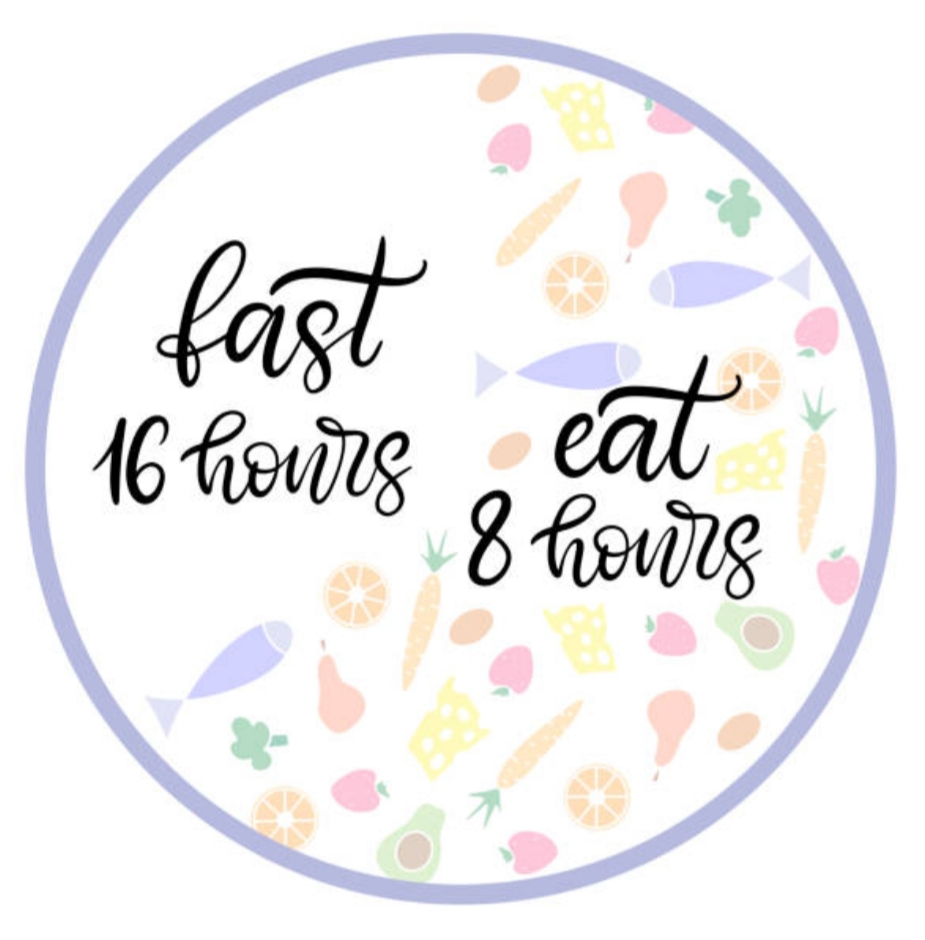
Types of intermittent fasting
There is more than one way to implement intermittent fasting, and different methods will produce different results.
- A 20-hour fast every day. This fast ends with one big meal each evening. During the 20 hour fasting period, raw fruits, vegetables, and some lean protein are allowed.
- The 5:2 system. In this method, fasting is done any two non-consecutive days of the week. On fasting days, either one can consume nothing at all or limits to 500-600 calories. On the other 5 days of the week, eating isn’t restricted.
- The Eat-Stop-Eat diet. This is a variation of the 6:1 diet which can include two 24-hour fasts per week; this involves fasting for 24 hours, once or twice a week, for example by not eating from dinner one day until dinner the next day.
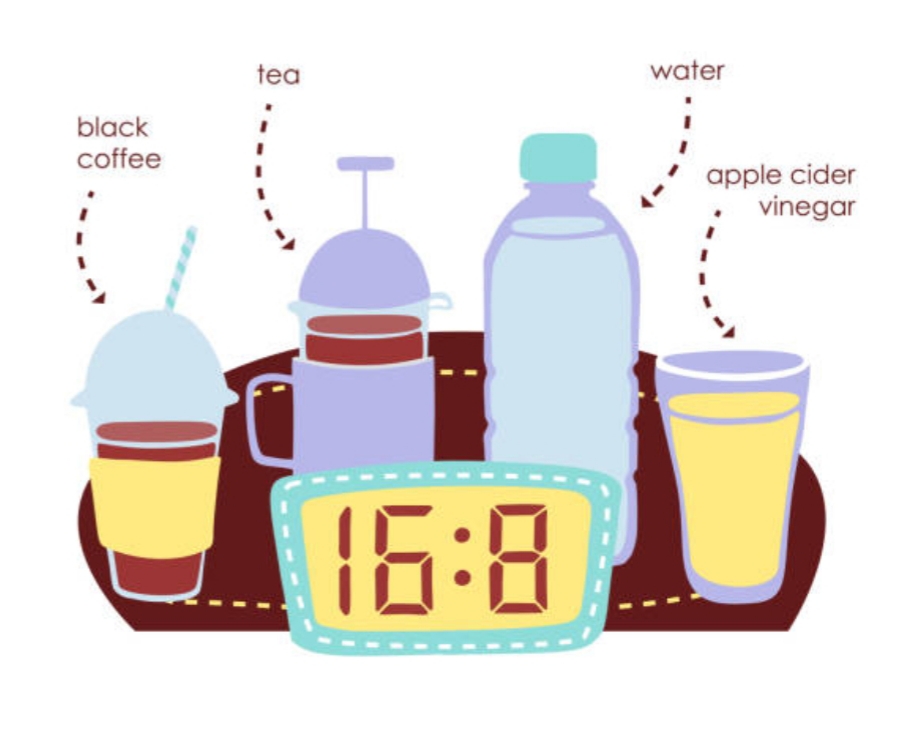
- The 16:8 diet. This is a type of fasting for 16 hours per day by consuming all meals within an eight-hour window. Also called the Lean-gains protocol, it involves skipping breakfast and restricting the daily eating period to 8 hours, such as 1–9 p.m. Then fasting for 16 hours in between.
- Extended overnight fast. In this version just lengthen overnight fast to last 14 hours. In other words, to fit regular meals into a span of 10 hours and fast for 14 hours overnight. This way most of the fast occurs while sleeping – painless.
- Alternate day fasting. This consists of eating regularly one day, 20% of your normal intake the next (about 400 calories), and repeating that pattern continuously.
The most researched intermittent fasting methods are included and explained:
1. Lean-gains Daily Intermittent Fasting:
It is a 16–hour fast followed by an 8–hour eating period. Lean-gains intermittent fasting is done every day, so it becomes very easy to get into the habit of eating on this schedule. This is a great method for achieving and maintaining a lean physique.
HOW TO DO IT:
- Fast for 16 hours every day (about 8 hours of the fast will take place while sleeping).
- Eat the first meal of the day after the 16-hour fast.
- After 8 hours first meal, start another 16-hour fast.
- It does not matter when to start the 8-hour feeding period.
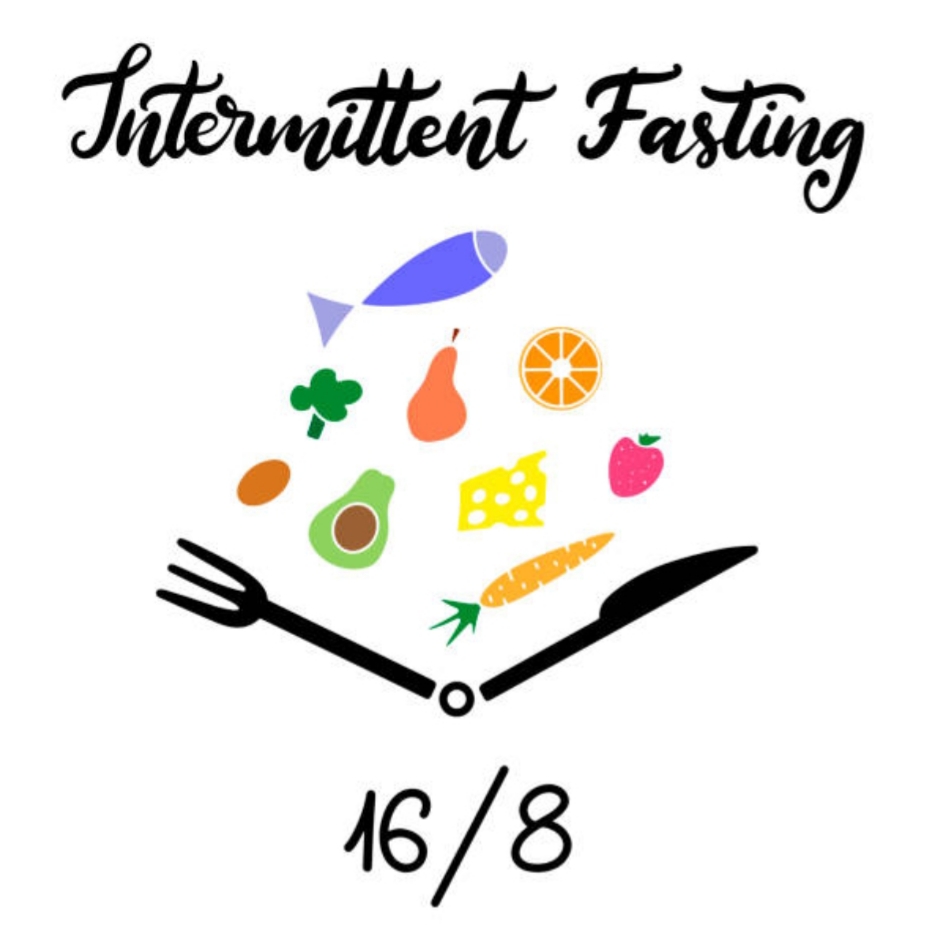
2. Weekly Intermittent Fasting
If one is looking to bulk up or keep weight on, then this is a great option. Since this is only cutting out two meals per week and can enjoy many physiological benefits of fasting without losing weight.
HOW TO DO IT:
- Fast for 24 hours every week (about 8 hours of the fast will take place while sleeping).
- In this example, lunch on Monday is the last meal of the day. Then fast until lunch on Tuesday.
3. Alternate Day Intermittent Fasting (Fast for alternating 24-hour periods)
This style of intermittent fasting is often used in research studies, but, it isn’t very popular in the real world.
HOW TO DO IT:
- Every other evening starts a 24-hour fast (about 8 hours of the fast will take place while sleeping). In the example below, would finish the dinner and begin a 24-hour fast on Monday at 8 pm.
- Break the fast and start a 24-hour feeding period every other evening. For example, one can start fasting on Monday at 8 pm and eat the next meal on Tuesday at 8 pm.
- Ideally, the alternate day intermittent fasting schedule should allow eating at least one meal a day.
Fed and Fasted
There are some true benefits of fasting and some dangers, and some claims are not backed up by science.
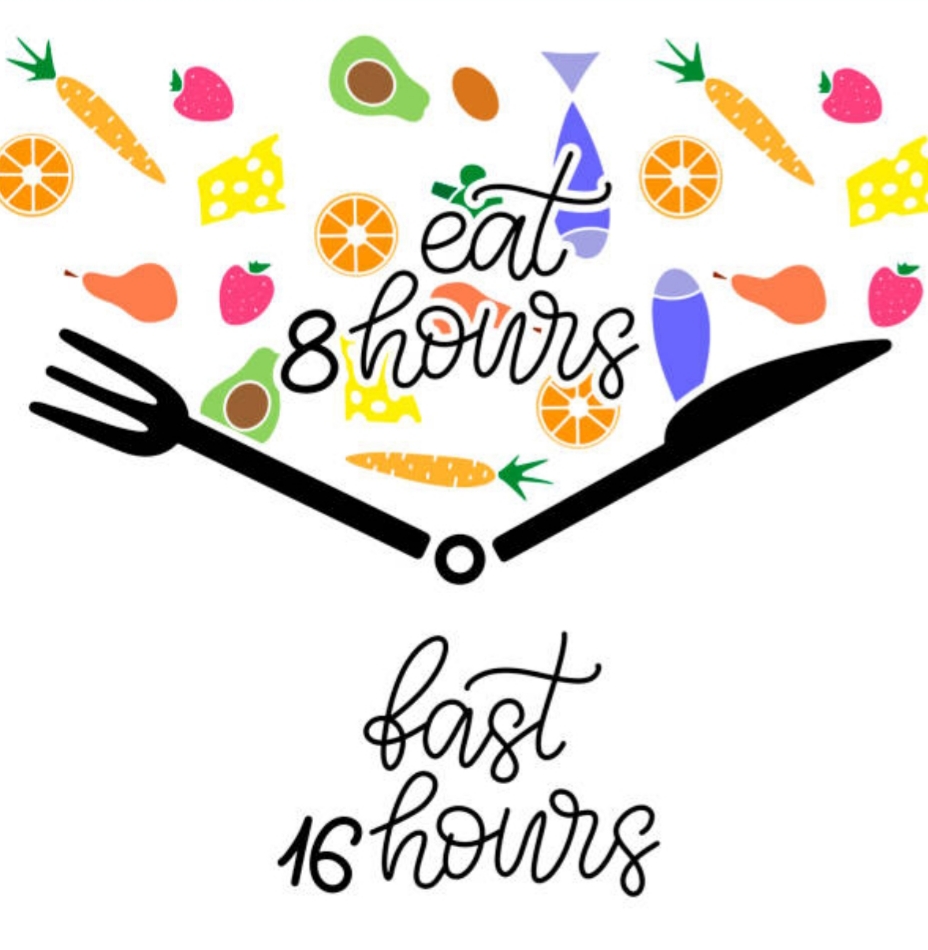
Based on studies over the past two years from the National Institutes of Health and the American Journal of Clinical Nutrition, fasting can have positive benefits when done correctly. Scientists are still researching the topic, but so far there is good news. Intermittent fasting has a link to decreases in weight, LDL cholesterol, triglycerides, and inflammation. Diabetes, heart disease, and blood sugar levels are generally low in people who fast. Fasting wasn’t linked to significant fatigue or mental impairments either.
Fasting every other day, or going for too long without food may lead to serious starvation-like effects such as heart and organ damage and muscle loss. People also stayed hungry while they fasted, no matter how long they kept up the diet.
Fed state
- Insulin high.
- Glucose high.
- Burning glucose.
- Storing fat.
Fasted State
- Insulin low.
- Glucose low.
- Liberating fat.
- Burning fat
Changes that take place during Fasting
- Human Growth Hormone (HGH): The levels of growth hormone skyrocket, increasing as much as 5 -fold. This has benefits for fat loss and muscle gain.
- Insulin: Insulin sensitivity improves and levels of insulin drop dramatically. Lower insulin levels make stored body fat more accessible.
- Cellular repair: When fasted, cells initiate cellular repair processes. This includes autophagy, where cells digest and remove old and dysfunctional proteins that build up inside cells.
- Gene expression: There are changes in the function of genes related to longevity and protection against disease. These changes in hormone levels, cell function, and gene expression are responsible for the health benefits of intermittent fasting.
Fasting is an effective way of achieving a healthy body weight.
In a recent year-long study, adults with obesity lost 6% of body weight (approximately 13 pounds) and maintained this weight loss with alternate-day fasting. Studies also support the use of 5:2 and 16:8 for weight loss. After 3-6 months of 5:2 or 16:8, people with obesity decreased body weight by 3 – 7% (8 -15 pounds).
Intermittent fasting can also help reduce the risk of developing heart disease and diabetes. Recent evidence shows that fasting can lower “bad” LDL cholesterol by up 15%, triglycerides by up to 25%, and raise “good” HDL cholesterol by up to 10%. Blood pressure also decreases by 5 -10 mm Hg with various fasting regimens. Reductions in diabetes risk have also been observed during periods of fasting. For instance, intermittent fasting has been shown to lower blood glucose, insulin, and improve insulin sensitivity in people with obesity and pre-diabetes. Reduction in risk for heart disease and diabetes can be attributed to weight loss associated with intermittent fasting.
Researches On Intermittent Fasting
More recently, it’s been shown that intermittent fasting may help slow aging and extend lifespan. In a very recent study conducted at Harvard University, fasting was shown to help keep certain cell components in a “youthful” state, which may in turn improve life expectancy.
More and more scientific evidence shows that fasting is a great way to lower chronic disease risk, slow aging, and achieve healthy body weight.
The Benefits of Intermittent Fasting
- Fasting simplifies our day by reducing the number of meals you have to prepare.
- Intermittent fasting helps to live longer. Scientists have known for a long time that restricting calories can lengthen life. Intermittent fasting activates many of the same mechanisms for extending life as calorie restriction.
- Intermittent fasting may reduce the risk of cancer. A small amount of medical research has indicated that fasting might be helpful in the fight against cancer.
- Fasting can help to get lean. Fasting puts the body in a fat-burning state that is rarely reached while following a normal eating schedule.
- Intermittent fasting is much easier than traditional diets. The reason most diets fail is that we don’t follow the diet over the long term. Fasting is a weight loss method that is remarkably easy to stick to long-term.
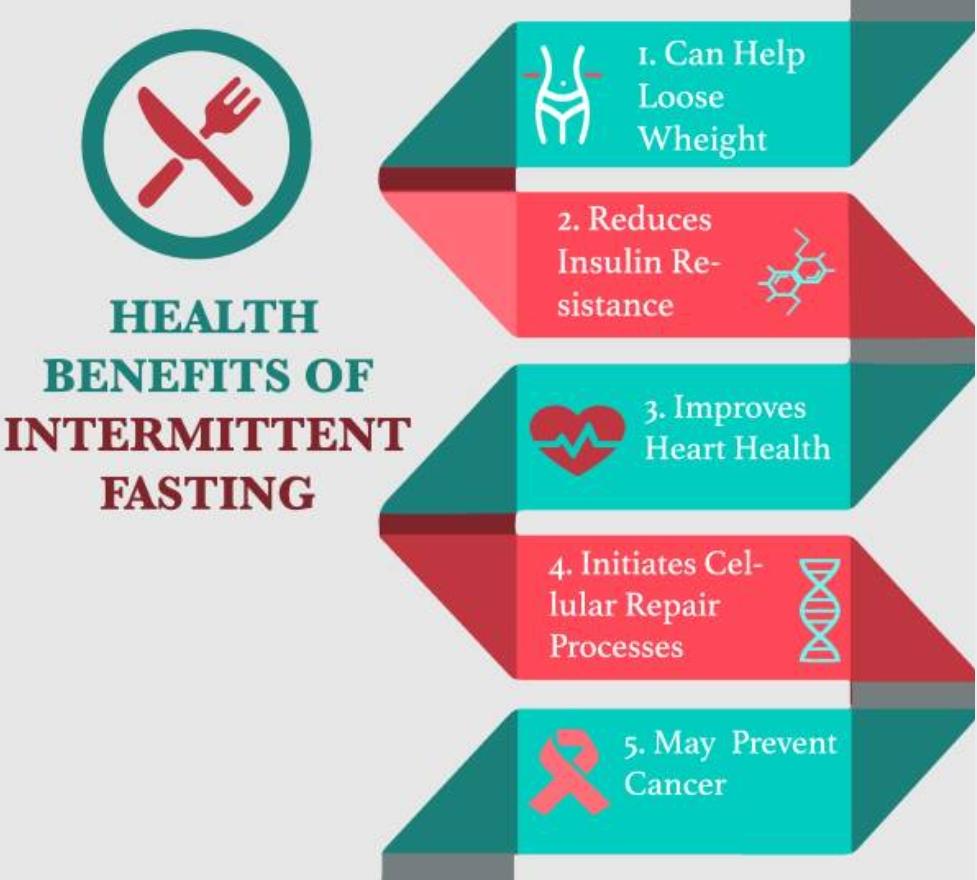
- Aids weight loss.
- Protects heart health.
- Improve insulin sensitivity.
- Protects brain functioning.
- Inhibits cancer cell growth.
- Reduce bad cholesterol
- Reduce aging process
- Improves metabolism
- Promotes longevity
- Reduces inflammation
- Improves neurodegenerative diseases
- Normalizes blood pressure
- Promotes fat loss.
- Improves cellular regeneration and repair.
- Improves lipid parameters
- Reduces inflammation.
- Improves allergies.
Safety and Side Effects
Hunger is the main side effect of intermittent fasting. One may also feel weak and our brain may not perform well. This may only be temporary, as it can take some time for our body to adapt to the new meal schedule. If we have a medical condition, we should consult with the doctor before trying intermittent fasting. Intermittent fasting has an outstanding safety profile. There is nothing dangerous about not eating for a while if one is healthy and well-nourished.
Avoid Intermittent Fasting, if you have these problems:
- Diabetes.
- Blood sugar regulation.
- Low blood pressure.
- Take medications.
- Are underweight.
- Have a history of eating disorders.
- A woman who is trying to conceive.
- Has a history of amenorrhea.
- Pregnant
- Breastfeeding.
People with type 1 diabetes or women who are pregnant or nursing should not try these diets. Children should not try fasting as it may impede their growth. Keep in mind that intermittent fasting is just one option for weight loss. While some people may find fasting easier to stick to than daily calorie restriction, others may not. All in all, people should choose a diet that they can easily incorporate into their lifestyle and stick to long-term.

There is quite a lot of contrasting findings of intermittent fasting, but the one common message is that more evidence to examine the effects of this method; in particular longer-term human studies. However, current research indicates that intermittent fasting can be an effective method to promote weight loss, so this may be worth considering for some individuals while weighing up the pros and cons of intermittent fasting as discussed in this article.
COMMON ARGUMENTS FOR FASTING DIETS
- Our ancestors would have had periods of fasting depending on food availability.
- Some people prefer an ‘all or nothing approach when trying to restrict calories for weight loss compared to a ‘moderation’ approach.
- Promoters of intermittent fasting report a host of long-term health benefits, such as increased longevity, improved metabolic health, improved weight loss, and a reduction in diseases, e.g. heart disease and Type 2 diabetes.
COMMON ARGUMENTS AGAINST FASTING DIET
- May lead to tiredness, headaches, lack of concentration, and poor mood.
- May be dangerous if unsupervised by a medical professional depending on the person’s age, medical history, and lifestyle.
- Not a very balanced approach, potential to interfere with metabolic rate.
- There was an overall lack of evidence and no significant differences in outcomes found between more moderate daily restriction and this extreme fasting approach.

Frequently Asked Questions
Here are some answers to the most common questions about intermittent fasting.
Can I Drink Liquids during the Fast?
Yes. Water, Coffee, tea, and other non-caloric beverages are fine to drink during Intermittent fasting. Try to avoid sugar in your coffee. Small amounts of milk or cream will be okay. Coffee can be particularly beneficial during a fast, as it can blunt hunger.
Isn’t It Unhealthy to Skip Breakfast?
No. The problem is that most stereotypical breakfast skippers have unhealthy lifestyles. You make sure to eat healthy food for the rest of the day then the practice will be perfectly healthy.
Can I Take Supplements While Fasting?
Yes. However, keep in mind that some supplements like fat-soluble vitamins may work better when taken with meals.
Can I Work out while Fasted?
Yes, fasted workouts are fine. Some people recommend taking branched-chain amino acids (BCAAs) before a fasted workout.
Will Fasting Cause Muscle Loss?
All weight loss methods can cause muscle loss, which is why it’s important to lift weights and keep your protein intake high. One study showed that intermittent fasting causes less muscle loss than regular calorie restriction.
Should Kids Fast?
It will be better if you don’t allow our children to do fasting.

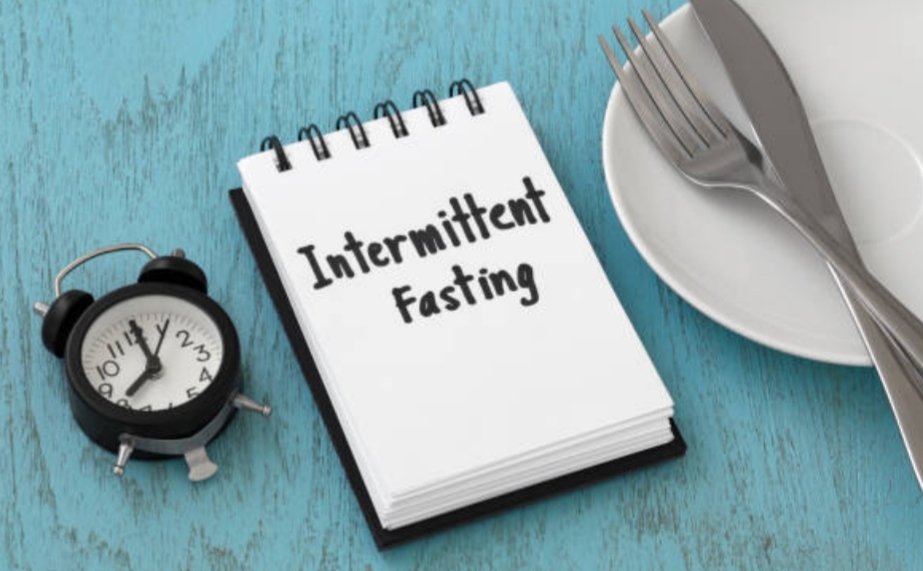

4 Comments
Good Read!
Thank you
nicely explained.
Thank you